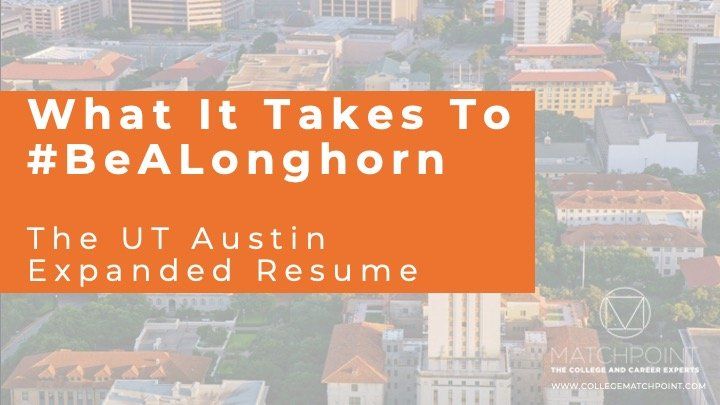This page is licensed under Creative Commons under Attribution 4.0 International. Anyone can share content from this page, with attribution and link to College MatchPoint requested.
Posts tagged Highly Selective Colleges

As families explore highly selective colleges where total costs often exceed $80,000 a year, financial aid packages determine whether such prestigious degrees become accessible or remain pipe dreams. Unlike public universities offering substantial merit scholarships, elite private colleges provide almost exclusively need-based aid. However, with few exceptions, these schools promise to meet 100% of demonstrated financial need. Here’s what families should understand.

In today's hyper-competitive college admissions landscape, the journey to prestigious universities like Stanford has evolved into a marathon rather than a sprint. For many highly selective colleges and competitive majors, the admissions process has effectively become a three-year effort, beginning as early as sophomore year of high school. This shift means that parents of 9th and 10th graders need to start thinking strategically about their child's college preparation earlier than ever before.

Deciding whether to apply early decision can be a challenging dilemma for high school students and their parents. Early decision applicants generally have higher acceptance rates compared to regular decision applicants; for example, Vanderbilt University admitted 15.7% of ED applicants in 2023, compared to just 4.2% of regular decision applicants. However, this binding commitment requires a high level of certainty about the student's top choice, which can be daunting amid the complexities of college selection. Colleges are increasingly admitting a larger percentage of their class through ED to improve yield rates, ensuring that admitted students are more likely to enroll, adding pressure to make such a significant decision early in the senior year. Given these trends, let's break down the pros and cons of Early Decision and provide a checklist to help you make an informed choice. What is Early Decision? Early Decision (ED) is an application option offered by many colleges where students apply early (usually by November 1st) and receive an admission decision by mid-December. The key difference between ED and other application types, including Early Action, is that ED is binding – if you're accepted, you're committed to attending that school. Pros of Applying Early Decision 1. Higher Acceptance Rates : Many colleges admit a higher percentage of ED applicants compared to regular decision applicants. 2. Demonstrating Interest : Applying ED shows the college that they're your top choice. 3. Early Decision : You'll know your college plans by December, potentially reducing stress during your senior year. 4. Potential for Better Financial Aid : Some colleges may offer more generous financial aid packages to ED applicants. Cons of Applying Early Decision 1. Binding Commitment : If accepted, you must attend the school (barring extreme circumstances or insufficient financial aid). 2. Limited Financial Aid Comparison : You won't be able to compare financial aid offers from multiple schools. 3. Reduced Negotiating Power : With a binding commitment, you have less leverage to negotiate your financial aid package. 4. Less Time to Improve Your Application : You'll be applying with your junior year grades and test scores. 5. Missed Opportunities : With the rising popularity of Early Action, choosing ED means you can't apply EA to multiple schools. Early Decision Checklist: Is It Right for You? Use this 6-point checklist to help determine if Early Decision is the right choice for you: 1. Clear First Choice □ Do you have an absolute favorite school that stands out above all others? □ Have you thoroughly researched this school and are confident it's the best fit for you? 2. Academic Readiness □ Are your current grades and test scores within or above the school's typical admitted student range? □ Do you feel your application is as strong now as it will be later in the year? 3. Financial Preparedness □ Has your family thoroughly reviewed the school's costs and financial aid policies? □ Can your family comfortably afford this school without needing to compare aid packages from other institutions? 4. Understanding of Commitment □ Do you fully understand the binding nature of Early Decision? □ Are you prepared to withdraw all other college applications if accepted ED? 5. Timing and Preparation □ Can you submit a strong, well-prepared application by the early deadline? □ Have you allowed enough time for any required standardized tests, essays, and recommendations? 6. Exploration of Alternatives □ Have you considered Early Action as an alternative to Early Decision? □ Are you comfortable potentially missing out on Regular Decision or Early Action opportunities at other schools? If you can confidently check off most or all of these points, Early Decision might be a good option for you. If you have several unchecked boxes, you may want to reconsider and explore other application strategies. A Word to Parents As a parent, your role is crucial in the ED decision. Here's how you can help: 1. Discuss finances openly : Be clear about what your family can afford and use net price calculators to estimate costs. 2. Encourage research : Help your child thoroughly investigate their top-choice school before committing to ED. 3. Provide perspective : Remind your child that there are many great schools where they can thrive, not just one "perfect" choice. 4. Support, don't pressure : While you can offer guidance, the decision to apply ED should ultimately be your child's. 5. Consider all options : Discuss the pros and cons of ED vs. EA and regular decision, taking into account the current trends in college admissions. Early Decision can be an excellent option for students who have a clear top choice and are in a financial position to commit without comparing aid packages. However, it's not the right path for everyone, especially given the rising popularity of Early Action. The surge in early applications, particularly at selective institutions, has changed the admissions landscape. While ED can still offer an advantage, it's crucial to weigh this against the flexibility of EA or regular decision. Use the checklist provided to carefully consider all your options, discuss with your family, and consult with your school counselor before making this significant decision. Remember, whether you apply Early Decision, Early Action, or Regular Decision, the most important factor is finding a school where you'll be happy and successful.

Many students are unaware of the incredible opportunities that honors programs provide. These are selective programs for highly motivated students within a university that often offer students numerous benefits, including small classes with the best professors, priority class registration, access to mentors, funded travel and research, networking events, and more.

As summer approaches, many students begin making plans for camps, internships, and enrichment programs. But one of the most impactful and flexible options is often overlooked: the self-directed project. For motivated students, especially those considering highly selective colleges or competitive majors like business, engineering, or computer science, a self-directed project is not just a creative outlet—it’s a strategic move.

The term “highly selective schools” refers to colleges and universities with an acceptance rate of 20 percent or less. However, in recent years, the number of schools with such low acceptance rates has increased, making the college application process even more competitive. While only 26 schools have an acceptance rate of less than 10 percent, and yet these schools are the ones most likely to be mentioned by students. This narrow mindset can limit their options and make the college application process more stressful than it needs to be.

As college decision letters hit mailboxes (or email accounts) in April, thousands of accomplished high school students face rejection from dream schools like Stanford and Duke. For parents, it’s absolutely heartbreaking to see incredible kids get turned down by elite colleges despite straight A’s, stellar SAT scores, top AP scores, and armloads of extracurricular achievements. How can parents best comfort and encourage their teen after such a significant letdown?

As you and your child begin looking at colleges, it's important to remember that not all schools are created equal. Highly selective colleges can be an excellent option for some students, but they're not right for everyone. Here are four important questions to ask when considering whether a highly selective college is the right fit for your child.




